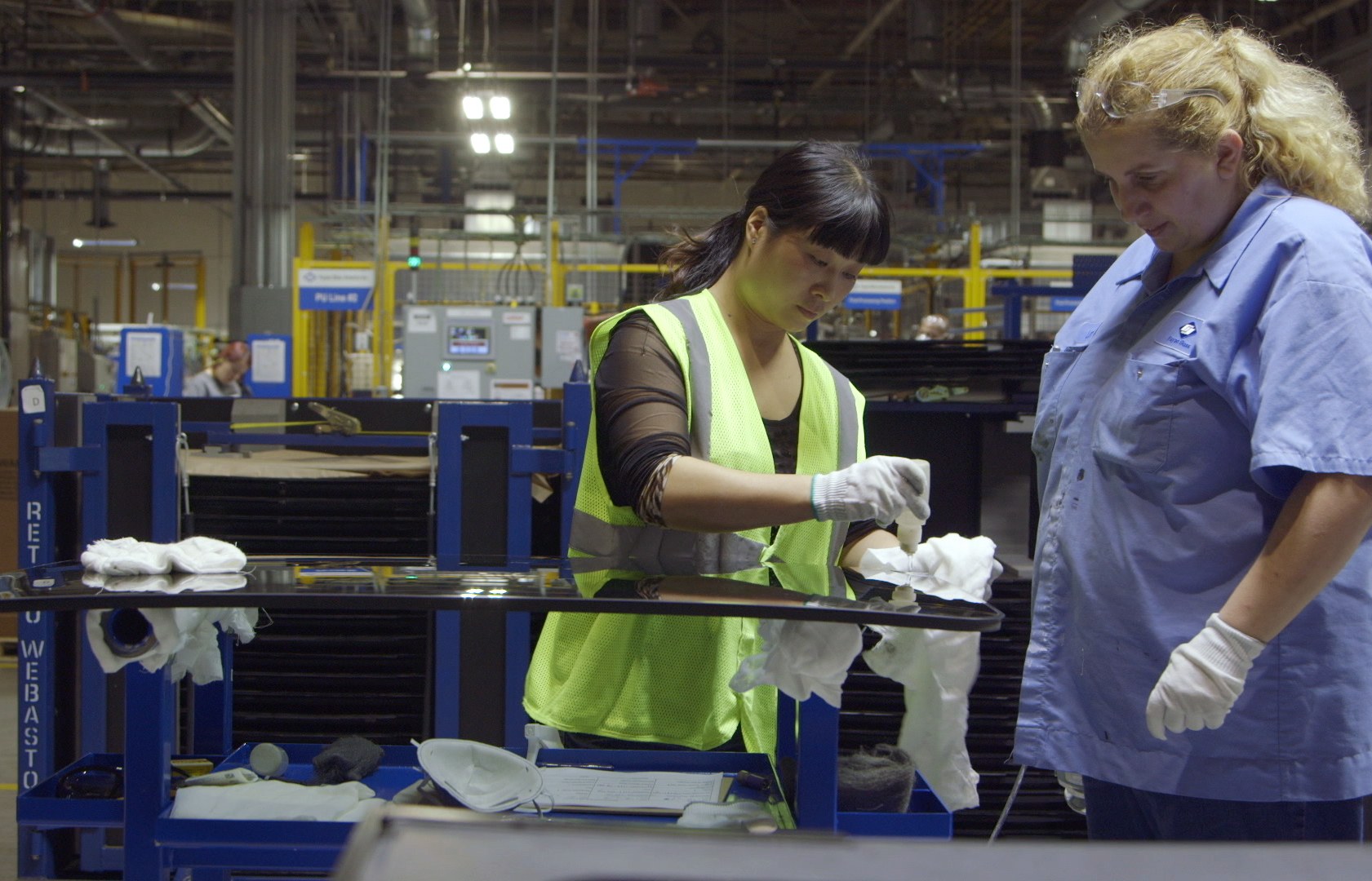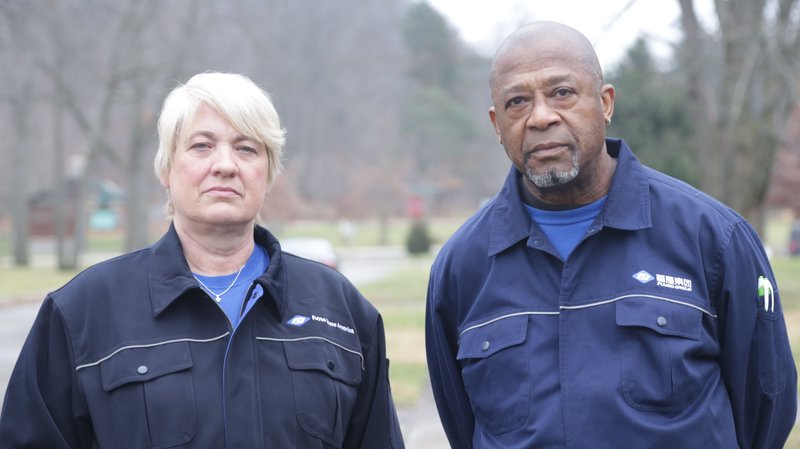“America is a place to let your personality run free. As long as you’re not doing anything illegal, you’re free to follow your heart. You can even joke about the president. Nobody will do anything to you.”
Freedom in thought and the need to survive are two very different things, and they represent a recurring dynamic between the worker’s right to succeed and the burden that society has placed on it.
It is in this light that award-winning documentary American Factory shines, as it paints an image of an increasingly prominent cultural and socioeconomic divide. It is above all a reminder of a limited future, where humans claw their way to the top just for the chance to step on each other’s back. And for others who wish not to partake in such ruthless competition, any state of middle ground has been slowly removed by society itself and with it, any sense of comfort or reprieve for the common American.
A Real Story of A Chinese Company on American Soil
The documentary itself follows a true story of a closed General Motors assembly plant in Ohio, which had caused a sudden and dramatic loss of livelihoods for the people who had depended on a stable job for any sort of subsistence.
However, when Chinese company FuYao enters to ostensibly create thousands of jobs, it revitalizes the hopes and spirits of a local industrial sector that had fallen on desperately hard times. FuYao brings along Chinese employees who have become accustomed to grueling work with little pay, and they are willing to leave their families just for the sake of a new opportunity. The Chinese employees are set to the task of training the new American hires from the local area with the techniques involved in industrial glass production.
As different cultures and habits mesh and collide, a cultural dilemma is formed between the two sets of workers as terrible working conditions combined with lower pay lead to interchanging struggles for both sides.

Courtesy of Netflix
The Shape of the Cultural Divide in the Workforce
More so than ever before, American Factory is able to pinpoint the real-life cultural divide and interactions between American and Chinese workers, as most of the conversations are filmed naturally without scripting. Within their communication, a clear dynamic is formed as both sides struggle to comprehend the difficulties that others face beyond that of the work itself.
The Chinese managers in the film see the American counterparts as unproductive and sluggish in comparison to the focused, organized Chinese workers, who complete their tasks with ease. While tensions are never exceeded, scenes help provide viewers with context that displays the overarching attitudes of management in regards to the workforce. For instance, in one scene, an American manager jokes to a Chinese colleague that duct-taping the mouths of American workers would help them talk less and work more.
Even with horrible working conditions and low wages, the company still loses money. FuYao becomes forced to either work their men even harder or risk shutting down. This causes an even greater divide between workers who are sacrificing everything just to make ends meet and a management team that continues to push them even harder to make a profit.
However, among the workers themselves, despite polarizing backgrounds and worker habits, both sides open their hearts to engage in meaningful bonding. They share experiences of love and loss, and though their struggles appear different, they are able to strike each other to the core, understanding that everyone has issues that they cannot comprehend entirely.
An Understanding of the Reality of Capitalism
American Factory is also a documentary of a trend of emerging socioeconomics in the workplace that Americans have feared for generations. With a degrading sense of worker rights over the past decade, competition has steadily increased, and with foreign workers willing to work longer hours with little pay, Americans will need to adjust to an increasingly uneven playing field where there is always someone willing to work harder than you. For them, work is a luxury, and it represents survival rather than the root of success.
In this sense, capitalism is a double-edged sword. Americans pride themselves on working hard to achieve one’s dreams, but when there is always someone willing to go through much more to snatch those dreams from you, how can you really succeed while maintaining a desirable quality of life?

Courtesy of Netflix
The Overarching Message
American Factory is a one-of-a-kind documentary that details the real-life experiences of intercultural exchange that represent the very dynamics that will come to define American capitalism in the 21st century. Unlike many scripted films made purely for entertainment, American Factory depicts a very real and alarming concern, as the production company is just one of many where a foreign business operating on American soil has led to unforeseen consequences and difficulties in regards to the lives of those involved.
But more than just this, the socioeconomic and cultural implications for the entirety of the country are tremendous, and in this sense, American Factory is incredibly unique in an industry dominated by carefully structured interactions that fail to show the truth of a new age of worker dynamics.
Featured image: Netflix











